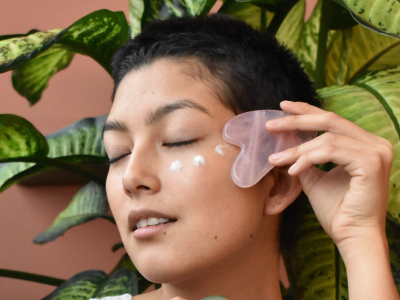The skin is our body's largest organ, serving as a barrier against the external environment and protecting us from harmful elements. In addition to protection, it helps with thermoregulation, sensation, and water retention.
Anatomically, the layers of the skin can be divided into three parts.
- The top layer is the Epidermis which provides a waterproof barrier and creates our skin tone.
- The second one is Dermis which contains tough connective tissue, hair follicles, and sweat glands.
- The last one is the Subcutaneous layer or hypodermis which is basically fat and connective tissues.


Taken together, these three layers play a role in the integrity of the skin, so it is important to pay attention to keep them intact. Once it is compromised we are subject to a lot of health risks.
Understanding the connection between skin integrity and eczema is essential in maintaining the health and well-being of our skin. This blog will explore the relationship between these two concepts and provide practical tips on enhancing skin health in eczema.
Dermatitis undermines skin integrity.
Dermatitis impairs the skin barrier, the protective outer layer of the skin that is a barrier against harmful substances. The skin barrier comprises lipids, fatty molecules that help retain moisture and prevent trans-epidermal water loss.
When the skin barrier is damaged in Dermatitis, the skin becomes dry and susceptible to infections, compromising skin integrity and making it more prone to physical damage such as cuts, bruises, and blisters.
What Causes Eczema?
In some people, eczema is related to a gene variation that affects the skin's ability to provide protection. With a weak barrier function, the skin is less able to retain moisture and protect against bacteria, irritants, allergens and environmental factors — such as tobacco smoke.
In other people, atopic Dermatitis is caused by too much of the bacteria Staphylococcus aureus on the skin, displacing helpful bacteria and disrupting the skin's barrier function. A weak skin barrier function also triggers an immune system response that causes inflamed skin and other symptoms.
Atopic Dermatitis (eczema) is one of several types of Dermatitis. Other common types are contact dermatitis and seborrheic Dermatitis (dandruff). Note: Dermatitis is not contagious.
Strategies to enhance skin integrity in Dermatitis
To improve skin integrity and prevent further harm from Dermatitis, it is crucial to adopt a skin care regimen that promotes fundamental skin health and strengthens the skin’s barrier. Here are a few recommendations:
1. Hydrate regularly: Hydrating the skin can help to repair the skin barrier and reduce water loss. Choose a moisturizer free of irritants such as fragrances, alcohol, and other harsh chemicals that can exacerbate dermatitis symptoms. Our Amrutini® Collection, soothes the skin giving it an intense hydration boost to help your skin heal and retain moisture.


2. Avoid scalding showers: Hot showers can strip the skin of natural oils and worsen dermatitis symptoms. It is advisable to take lukewarm showers instead.
3. Use mild skin care products: Select products free of harsh chemicals and fragrances, and instead opt for those specifically formulated for sensitive skin.
4. Look for products that contain ingredients that help eczema-prone skin, such as Oat or shea butter, aloe, glycerin, hyaluronic acid, petrolatum, vitamin e, humectants and niacinamide. Our Amrutini® Collection is made with the finest ingredients that promote healing and hydration such as:
- Muga Silk that helps with healing and regenerating
- Hyaluronic Acid for intense hydration
- Ashwagandha promotes collagen and reduces fine lines
- Vegan Ghee helps with repairing damaged skin and intense hydration
When considering lotion and skincare options, consult a skin expert and check out these products with the NEA seal of Approval.
5. Refrain from scratching: Even though it's especially difficult, avoid scratching the skin as that can disrupt/ break the skin barrier and worsen dermatitis symptoms. If itching is a problem, seek alternative methods to soothe the skin, such as using a cold compress.
6. Consult a dermatologist: If your dermatitis symptoms are severe or challenging to manage, it is advisable to seek the advice of a dermatologist. A dermatologist can prescribe topical treatments, oral medications, or phototherapy to enhance skin health.
In conclusion, skin strength, integrity and Dermatitis are all closely interlinked. Dermatitis impairs the skin barrier, making the skin more susceptible to physical damage. To enhance skin integrity in Dermatitis, it is essential to adopt a skin care regimen that promotes skin health, avoids irritants, and seeks professional medical assistance when necessary.
Currently, even though there is no cure, one can manage eczema and avoid flare-ups using home remedies, the right skincare regimen, preventive strategies, medication and lifestyle changes.




